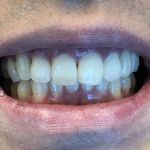- 1-Understanding-Dry-Mouth-and-Its-Causes
- 2-Natural-Remedies-to-Relieve-Dry-Mouth
- 3-Herbal-Treatments-and-Home-Remedies
- 4-Lifestyle-Changes-to-Prevent-Dry-Mouth
- 5-Saliva-Stimulation-Techniques
- 6-Real-Life-Experience-Managing-Dry-Mouth-Naturally
- 7-When-to-See-a-Dentist-about-Dry-Mouth
1. Understanding Dry Mouth and Its Causes
Dry mouth, or xerostomia, is a common condition where saliva production decreases, leading to discomfort, difficulty swallowing, and increased risk of dental problems. It can result from medications, dehydration, medical conditions like diabetes, or aging. Understanding these causes is crucial for effective treatment.
Saliva plays an essential role in maintaining oral health by neutralizing acids and washing away food particles. When saliva flow is reduced, natural defenses weaken, causing irritation and tooth decay.
2. Natural Remedies to Relieve Dry Mouth
Several natural remedies can help alleviate dry mouth symptoms. Staying well-hydrated by drinking water throughout the day is a simple yet effective approach. Sucking on ice chips or sugar-free candies stimulates saliva flow while providing moisture.
Using a humidifier at night adds moisture to the air, reducing dryness during sleep. Additionally, avoiding tobacco, caffeine, and alcohol helps prevent further drying.
3. Herbal Treatments and Home Remedies
Herbal teas such as chamomile, slippery elm, and marshmallow root have soothing properties and can provide relief for dry mouth. These herbs promote saliva production and coat the mucous membranes, easing irritation.
Applying aloe vera gel or rinsing with coconut oil may also help maintain moisture and fight oral bacteria naturally. These gentle remedies complement daily oral care and offer holistic support.
4. Lifestyle Changes to Prevent Dry Mouth
Adopting healthy habits can reduce the risk of dry mouth. Chewing sugar-free gum encourages saliva production, while maintaining a balanced diet rich in fruits and vegetables supports overall hydration.
Avoiding mouthwashes containing alcohol and practicing regular oral hygiene protect sensitive tissues. Small adjustments in routine can significantly improve comfort and oral health.
5. Saliva Stimulation Techniques
Massaging the salivary glands gently or performing facial exercises can stimulate saliva flow. Incorporating these techniques into daily care encourages natural moisture production.
Additionally, breathing through the nose instead of the mouth prevents further drying. Combining these practices with natural remedies enhances their effectiveness.
6. Real-Life Experience Managing Dry Mouth Naturally
Linda, a 60-year-old from Arizona, struggled with dry mouth due to medication side effects. After consulting with her dentist at Dentistry Toothtruth, she integrated herbal teas and regular hydration into her routine. Over months, she noticed significant relief and fewer dental issues.
Her story emphasizes how natural remedies, when combined with professional advice, provide lasting comfort and improve quality of life.
7. When to See a Dentist About Dry Mouth
If dry mouth persists despite home remedies, it’s essential to consult a dental professional. Persistent dryness can lead to serious complications such as infections and tooth decay. Dentists can recommend treatments like saliva substitutes or prescription medications tailored to your needs.
Early intervention helps prevent damage and ensures comprehensive care for your oral health.
For trusted natural remedy recommendations and expert dental services, visit Dentistry Toothtruth. Their team offers personalized solutions to help you manage dry mouth symptoms effectively and naturally.







 Eastland Family Dental4.0 (247 review)
Eastland Family Dental4.0 (247 review) Rose & Hollander Dental Associates4.0 (45 review)
Rose & Hollander Dental Associates4.0 (45 review) Foothill Smiles5.0 (264 review)
Foothill Smiles5.0 (264 review) Bright Now! Dental & Orthodontics4.0 (340 review)
Bright Now! Dental & Orthodontics4.0 (340 review) Lincolnshire Dental Care4.0 (154 review)
Lincolnshire Dental Care4.0 (154 review) Uchida Clyde Y DDS3.0 (9 review)
Uchida Clyde Y DDS3.0 (9 review) The Importance of Oral Health Education During Pregnancy for a Healthy Pregnancy
The Importance of Oral Health Education During Pregnancy for a Healthy Pregnancy Best Tips for Brushing Your Teeth Properly for Healthy Gums: Essential Techniques for Oral Health
Best Tips for Brushing Your Teeth Properly for Healthy Gums: Essential Techniques for Oral Health Why Skipping Dental Checkups Can Lead to Bigger Oral Health Problems
Why Skipping Dental Checkups Can Lead to Bigger Oral Health Problems Advantages of Porcelain Dental Restorations
Advantages of Porcelain Dental Restorations How Can Diabetes Cause Tooth and Gum Problems? Preventing and Managing Oral Health Issues
How Can Diabetes Cause Tooth and Gum Problems? Preventing and Managing Oral Health Issues Healthy Habits for Promoting Good Oral Health and Hygiene: Tips for a Healthy Smile
Healthy Habits for Promoting Good Oral Health and Hygiene: Tips for a Healthy Smile